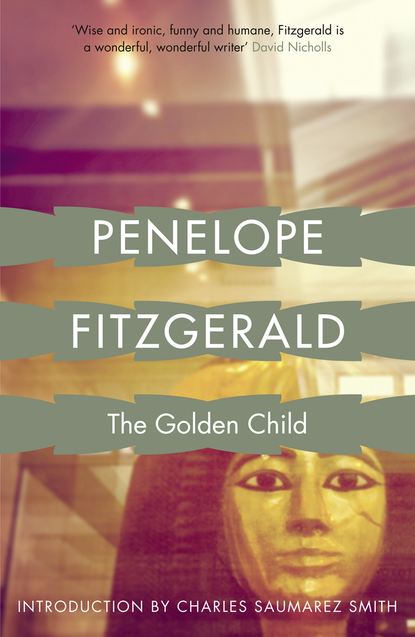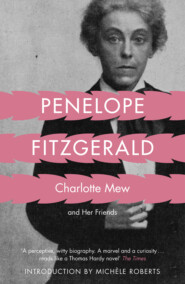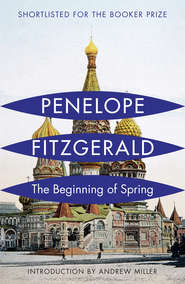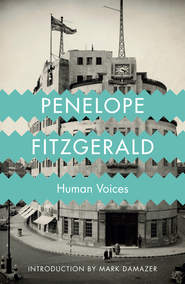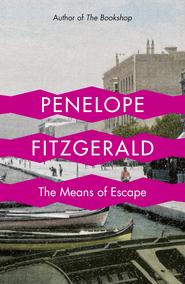По всем вопросам обращайтесь на: info@litportal.ru
(©) 2003-2024.
✖
The Golden Child
Автор
Год написания книги
2018
Настройки чтения
Размер шрифта
Высота строк
Поля
‘Look, Haggie, I didn’t know you’d ever heard of her. She’s just Dousha, just Sir William’s secretary. I’m sure I’ve never said anything about her.’
‘Why haven’t you?’
‘This is stupid. I don’t know her, and I don’t want to go out with her. It’s just that I don’t feel I should disappoint Sir William. No, Sir William can’t take her out, he’s too old. I can’t think what we’re talking about. She’s asleep half the time, anyway. I love you, I want to come home.’
Haggie had rung off.
In the great hive of the Museum, with the Golden Treasure at its heart, the mass of workers and young ones below continued to file, even during the sacred lunch hour, with ceaseless steps past the admission counter. The long afternoon began. Above in the myriad cells drones, cut off from the sound of life, dozed over their in-trays. But Hawthorne-Mannering, neurotically eager, spent no moment in relaxation. Dr Tite-Live Rochegrosse-Bergson and Professor Untermensch had both arrived, though separately, had been conveyed from the airport in the same car — rather a shoddy manoeuvre, obscuring the inferior importance of the little German — and were now at the Museum. Elegantly groomed, like an attendant wraith, Hawthorne-Mannering urged them towards the passage and the lift for their conference.
‘… in Sir William’s room … a few words with two selected journalists … my good friend Peter Gratsos … Louis Sintram of The Times you will know of course …’
Rochegrosse-Bergson was a finished product, silver-haired but unmarked by time, wearing a velvet blazer and buckled shoes which could have belonged to one of several past centuries. The aura of one with many devotees, and — equally necessary to the Academician — many enemies, to whose intrigues in attempting to refute his theories he gracefully alluded, hung round about him. Professor Untermensch was smaller, darker, much quieter and much shabbier, but, on close examination, much more alarming, since he could be seen to be quivering with suppressed excitement. His jerky movements, the habitual sad gestures of the refugee, were accentuated, and his nose, as he humbly followed in the steps of the others, twitched, as though on the track of nourishment.
‘Could I have a word with you, Mr Hawthorne-Mannering?’ asked Deputy Security, suddenly advancing on the little group up an imposing side-staircase paved with marble.
‘It’s not at all convenient at the moment. Frankly, I find all these security precautions somewhat exaggerated. One’s distinguished visitors from abroad are disconcerted … After all, it’s not as though there were any specific trouble …’
‘That’s what I wanted to mention to you, Mr Hawthorne-Mannering. The police are in the building.’
2
‘THE police! One imagines they may well be here constantly, with the vast intrusion caused by the Exhibition …’
Hawthorne-Mannering realised at once that ‘intrusion’ was not the word he should have chosen, but he was too proud to change it.
‘If you could step in here, sir, just for a word with the police. Mace is the name — they’ve sent Inspector Mace from the station.’
‘But one’s guests …’
‘I could take them to the staff cafeteria if you think fit, for a glass of wine before the conference.’
This was a handsome offer from Deputy Security, but Hawthorne-Mannering received it with a finely-tuned suggestion of irritation.
‘I have already given them a glass of wine, though not from the staff cafeteria. I don’t know that Untermensch should have any more. He might easily become tipsy.’
Inexorably Deputy Security led the two savants away, while Hawthorne-Mannering was left in a small, almost disused room off the corridor, lined with cases containing some hundreds of Romano-British blue glass tear-bottles. Inspector Mace, more solid than anything else in the room, rose to meet him.
‘Well, Inspector, I hope you won’t regard it as offensive if I say that one is rather in a hurry …’
‘Quite so, sir. I’ve no intention of wasting time, either ours or yours. It is simply that due to increasing our force patrolling the area during the Exhibition it has been reported in passing by one of my men that cannabis indica is being illegally grown on one of the ground-floor window sills of the Museum. This, as you know, is a serious offence.’
‘In what possible way, Inspector, can I be concerned with this?’
‘We have been given to understand, sir, that you’re in charge of the Department of Funerary Art. The cannabis was being grown in what I am given to understand are known as “death pots”, that is, large funerary urns from your department. They were put just inside the window in an empty room to get the benefit of the central heating.’
‘With the Museum full of gold, you bother about two pots! If you mean to say that this is my sole connection with the affair …’
‘Have you noted down two pots as having gone missing, sir?’
‘The Museum has a holding of several thousand urns. Very few are on show at one time. I have not checked them personally for some months …’
‘I see. Meanwhile, perhaps you could inform us as to whether there are any registered addicts among your personnel?’
‘I can only say that I regret I am unable to help you. I recommend you to apply to Establishment, who engage the clerical staff. Meanwhile I recommend you, or implore you, or what you like, not to take any further steps until the Exhibition has been running a few more weeks. One has enough on one’s hands already.’
‘I am afraid we shall have to press the charges, sir,’ said Inspector Mace, but hesitation could be detected beneath his firm exterior. ‘The preliminary steps might, perhaps, be deferred a week or two. Of course, sir, we don’t wish to interrupt the wonderful public service the Museum is doing, in welcoming thousands of ordinary folk and giving them an opportunity to share its treasures …’
Escaping from the Inspector, Hawthorne-Mannering ascended with flying steps to Sir William’s room. The conference had already begun. Dr Rochegrosse-Bergson and Professor Untermensch had understandably declined the opportunity of a visit to the staff cafeteria, and had proceeded direct to the conference. All were seated, and the telephone had just rung, so that Miss Rank could signify that the Director was almost ready to join them. In another minute she rang through again, to say that he was on his way.
The queue, when Sir John glanced at it from the arched window which shed a chilly light into the corridor, looked tranquil enough. Frozen into submission, another fifty schools were marshalled into line, ‘closing up’ at every opportunity to give an illusion of forward motion. Round the WVS tea-stall the ground-frost had now melted, making a dark circular pattern. The whole area had become littered with plastic cups and spoons. Everything was orderly, there was no trouble at all.
The Director was well-known for his astounding power of cutting off his attention from one subject and focussing it on another, as a result of which, by the way, he had made a number of rather unwise decisions. But it enabled him now to forget both the enormous and the petty problems of administration as he entered Sir William’s room and looked round the assembly. The two journalists, exquisites for whom life could hold no further surprises, and removed by their foreign education from crass British prejudices, sat in their Italian silk shirts and deerskin jackets, waiting, in a kind of energetic idleness. Sintram had folded his long legs and placed one well-turned ankle on the opposite knee. Hawthorne-Mannering, pale as alabaster, was evidently dreadfully fussed. Sir William, having risen to greet the French and German scholars, had slumped down low, alarmingly low, in his easy chair and almost disappeared in his cloud of pipesmoke, depriving them of the formal speech of congratulations which both had intended to make. They were opening their briefcases. Rochegrosse-Bergson’s white hands slid over the golden clasp; the Professor’s case was shabby, and fastened with an unyielding zip. He sat altogether in the background, unconsidered and largely unaccounted for. As soon as the Director came in he fixed his sharp little eyes on him and concentrated on nothing else.
With the ease of long practice — evidently he could have lectured from a housetop, or in the middle of a desert — Rochegrosse-Bergson, in fluent English, commenced his discourse. After an entrée en matière, lasting a quarter of an hour exactly, he proceeded to a refutation of his unseen enemies.
‘Let us admit that Man, when he looks round at the world, tries, as his nature demands, to put some order or pattern into the confusing mass of objects he sees. What is this order? It is the error, the childish error of structuralists to believe that we divide all our concepts into twos, and only into twos. Mentally, do we not on the contrary see everything about us in threes?’
‘Some things look better in pairs,’ Sir William said. ‘They’d look odd if there were three of them.’
‘Yes, the universe is trinary,’ Rochegrosse-Bergson continued, courteously ignoring the interruption. ‘Just as the Ancients conceived of Three Graces linked in a circle and the Manxman dreams of three legs, so life is an eternal triad — going out — coming back and going out again. To understand the myth I proclaim to you that we must fold it in three.’
He moved his dapper hands with the gestures of an expert laundryman.
‘Compare the Ball of Golden Twine, for example, which, in my view, is the most important object in your distinguished Exhibition, with the clue of thread given by Ariadne to Theseus — and again with the cat’s cradle, a game, chers auditeurs, which, unlike string itself, has no end. What do we find? We find, gentlemen, that we go into the labyrinth to discover what we once were. Holding firmly the precious thread of golden twine, we ascend to the upper air, but knowing that we shall have once again, one day, to return to the interior of our unacknowledged selves. The journey of humanity is a progression neither forward nor backward, but noward. All our thoughts are, to use my own word, my own chosen signifier, la pensée-stop — the irresistible impulse to stop thinking at all. Our art — for every man, let us admit it, is an artist — is to achieve absolutely nothing!’
Amazingly enough, this arrant nonsense was eagerly taken down by the two journalists. Their cynicism was gone; they appeared hypnotised. A serious résumé would evidently appear in the Times Literary Supplement. Trained in French lycées, they were unable to resist the rounded sentences which now dropped a couple of tones to announce the coming peroration.
‘And thus, my friends, I have endeavoured to make perhaps a little clearer this evening …’
Broad winter daylight shone through the windows. The journalists scribbled on.
Professor Untermensch also knew, from long habit, the falling sound of the peroration. His time was coming; he was drawing nearer to the fabled gold to which, at one remove, he had devoted so much of his life’s work. His eagerness was distinctly embarrassing. As the Director rose he also got up, ready to follow him like a shadow.
Hawthorne-Mannering was in agitation, feeling that things were not being done properly. Nobody had been thanked.
‘If you could just manage a few words,’ he murmured, hovering over Sir William. ‘If you could just make some acknowledgement … if you could recognise the name of Rochegrosse-Bergson …’
‘Why should I?’ asked Sir William. ‘It may be somebody’s name, but it’s not his.’
Waring had received a message from the impeccable Miss Rank. She rang down. The Director required the Golden Doll from the Exhibition, to show it, as he had undertaken to do, to Professor Untermensch.
‘Isn’t that really Hawthorne-Mannering’s business? He’s inclined to be a little touchy if he thinks I’m doing his job.’
‘The exhibit should have been up here with us four and three-quarter minutes ago,’ Miss Rank replied.
‘But I can’t go and open the cases until the public have left and the place is clear. I don’t think you can actually have been down there. They’re packed six abreast. It’s impossible.’
‘The object Sir John requires is not in the cases. I have checked that it has gone to Records. Your friend Len Coker is supposed to be making a scale drawing of it in the Records studio, but he should have finished and sent it up long ago.’





